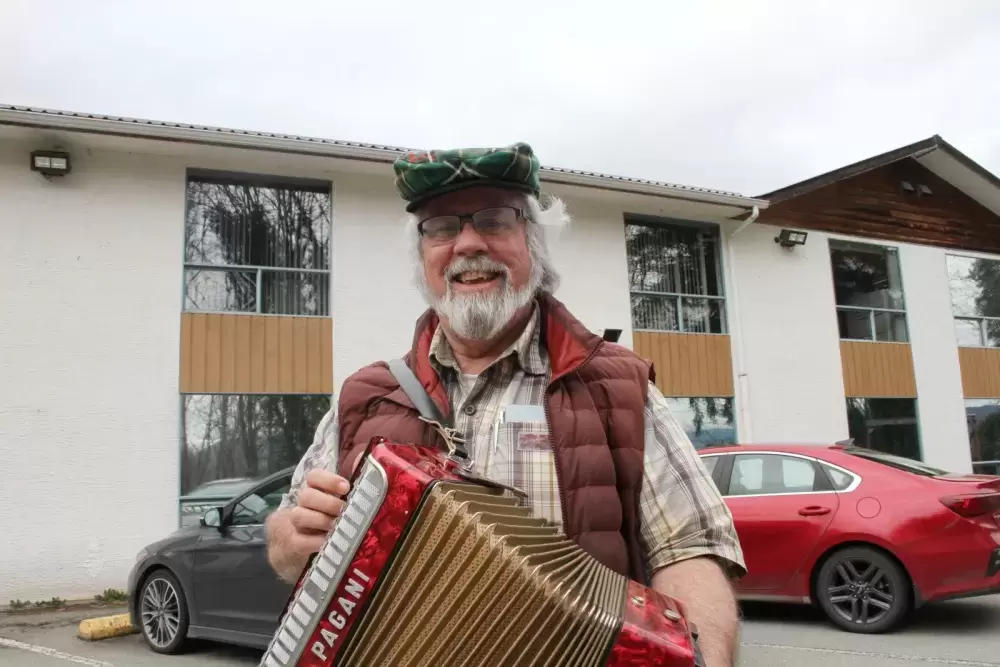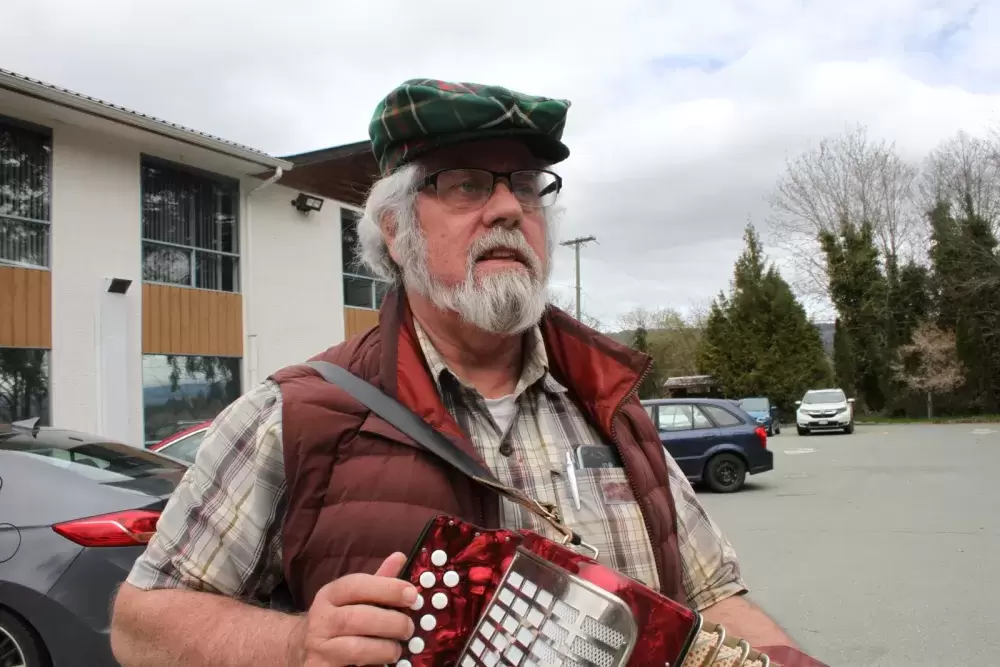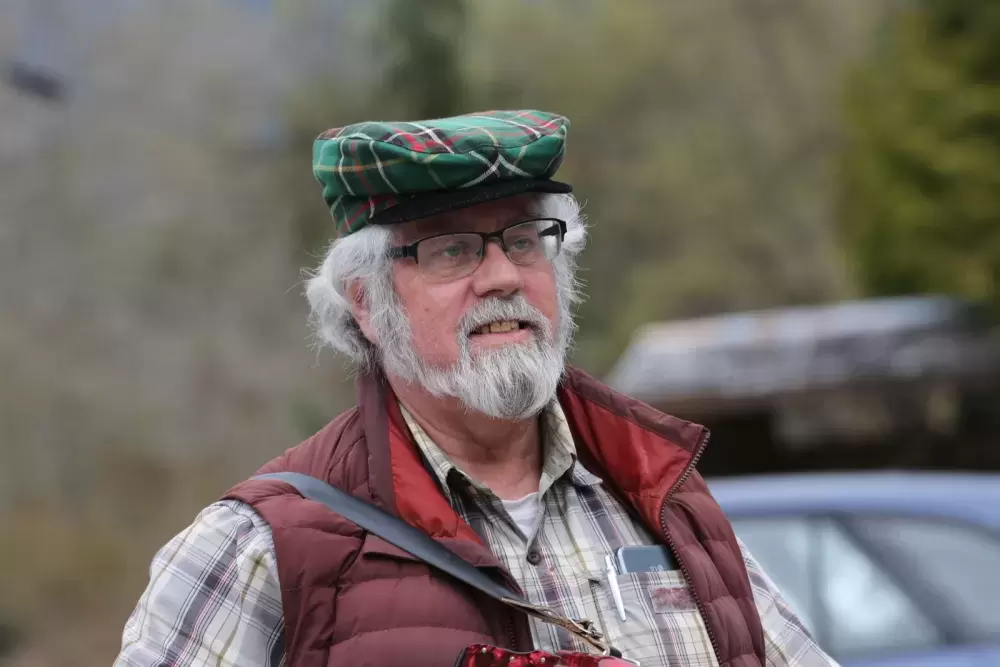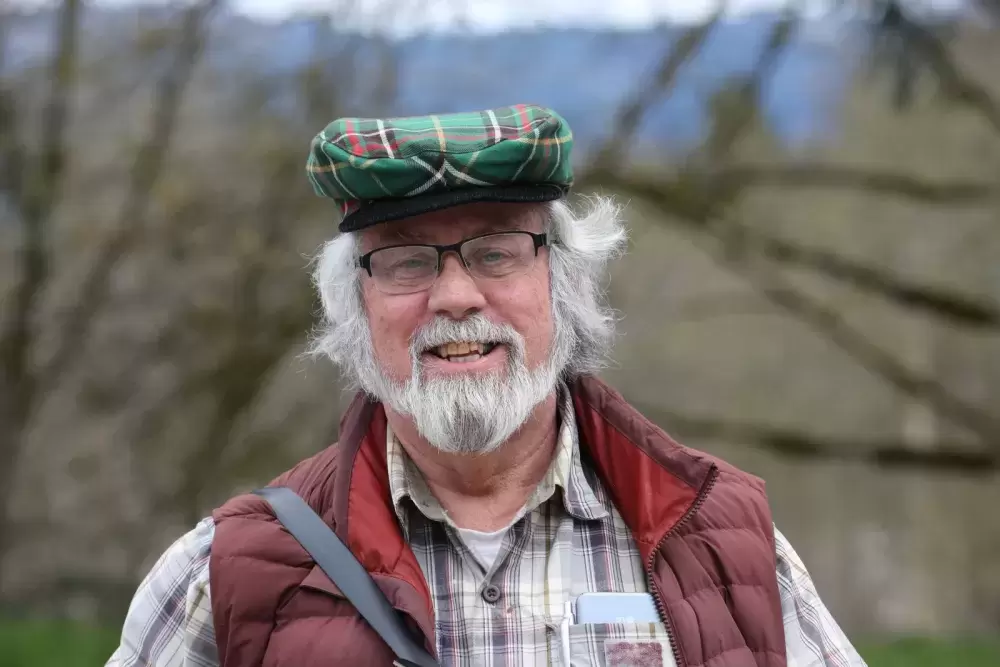During his lunch break, Robert Cluett sits back in a lawn chair in the Nuu-chah-nulth Tribal Council’s parking lot. With closed eyes, the 70-year-old tilts his head back, catching a springtime sun. After a long, rain-filled Vancouver Island winter, the few rays that break through the clouds illuminate the white in Cluett’s thick, carefully trimmed beard.
“I’ve always had the patience of a crocodile,” reflects the native of Trout River, Newfoundland, a Maritime accent still very much apparent despite his 30 years on Canada’s West Coast.
It’s the last week of Cluett’s 26-year term with the tribal council, a time taken up by helping Nuu-chah-nulth people navigate through the complexities of health benefits.
“They’ve been very respectful of me and open to learning what I had to offer,” reflects the NTC’s Health Benefits Program coordinator. “Certainly, they took me under their wing with their culture and ensured that I knew it.”
In the role Cluett has worked individually with Nuu-chah-nulth-aht, helping to guide them through a network of health benefits that involves multiple government agencies, pharmacies and insurance providers.
“There’s no program on the planet any more complicated, because you’ve got six, seven programs into one,” reflects Cluett of B.C.’s system of health benefits for Indigenous people. “Through First Nations Health Authority they made it a little bit easier, a little bit smoother, because the benefits became more pronounced and enhanced. That took a fair bit of pressure off me to explain why you can’t get this stuff.”
Although Indigenous people in B.C. are eligible for health services, details are not black and white around what types of medication are covered, and proof of eligibility can be a challenge as well if a patient is lacking an up-to-date status card.
“I don’t give up with them,” says Cluett of how he handles frustrated clients. “You’ve got to have a thick skin, you’ve got to deal with them and their frustrations - but you’ve got to balance the frustration with saying, ‘Okay, I understand you’re frustrated, but we’ve got to move forward.’ It’s dealing with people and learning to understand their situation, but you’ve got to be a people person, and a good one, to do this job.”
Before his tenure with the tribal council, the Newfoundlander had a 25-year career in the Canadian Armed Forces. He had left Trout River at 17, and was working with his father in Toronto, when a TV commercial caught his attention while watching a hockey game.
“I was watching TV while eating ice cream, watching the Toronto Maple Leafs hockey game, and this add came on,” recalls Cluett, who remembered the commercial’s slogan: ‘No life like it.’
Although he was just 19, the security of a pension attracted the young man, as did the possibility for adventure.
“It was mostly to learn and to travel with an organization that’s looking after the country,” he says. “That’s what appealed to me.”
Cluett joined the military in 1970, specializing in administration and security. He was posted in Petawawa, Ontario, then sent back to Newfoundland at a recruiting centre, followed by stints in Ottawa then Victoria for a final four years.
Over this time he dealt closely with military families, helping them coordinate moving when a member of the Canadian Armed Forces was stationed overseas.
“It would become a split decision in sending one part of the family over, and then six or eight months later the rest of the family goes over. You’d have to keep the file open,” says Cluett. “Huge pile of work. A lot of involvement, you’ve got to know the rules of going to another country. You’ve got to make sure they have their passports and their visas, their needles and all that.”
Cluett’s military career also entailed posts overseas, including a year in the Middle East, working in Egypt and Syria.
“Their culture was extremely interesting,” he says. “There was 26 different cultures in Damascus, Syria alone.”
“One thing I did learn was how much Canada, as a country, was respected,” he added. “Democracy, freedom, that type of thing that’s not in these other countries that are under martial law.”
After his military career was over, Cluett answered two NTC job postings while he was volunteering as a career counsellor with the John Howard Society. He was interviewed by a room of 17 people, and after offers for both positions came in he started working for the tribal council in health benefits four days later.
It soon became apparent that Cluett’s experience of working in the military was directly relevant.
“The string of similarity is dealing with people, their lives and their benefits that they’re entitled to,” he says. “When you help people in these circumstances, it goes a long way.”
Looking ahead, Cluett expects to continue with music, a passion that has engaged him for his whole adult life. He plays the accordion, guitar, harmonica and some fiddle, performing with the Old Time Fiddlers and new band called Eastern Tradition, which specializes in Newfoundland folk and Irish music.
“Music is the entrance to the soul,” says Cluett of the daily practice. “Every time you pick up an instrument and play, you’re making yourself happy, you’re occupying your bean. You’re leaning something.”




